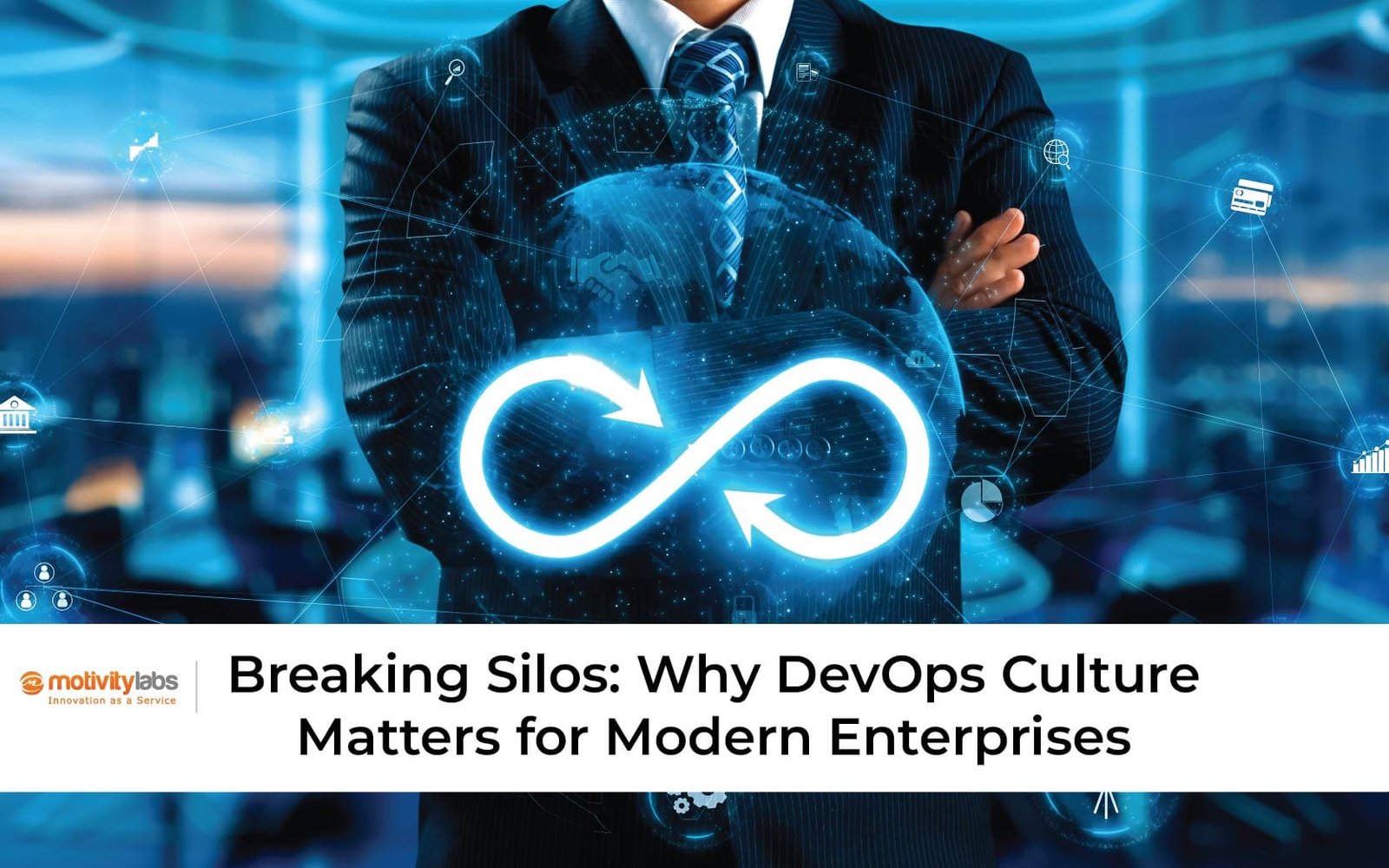In IT parlance, DevOps is an amalgamation of the “Development” & “Operations” practices. Development wants rapid change, whilst Operations wants stability and quality. DevOps helps achieve both objectives through transforming shared culture, processes, and technology.
Evolution of DevOps
The DevOps origin year is 2009 when Patrick Debois coined the term “DevOps” and gained significance over the years as one of its gurus. He wanted to learn IT from all possible perspectives and started working on a data center migration project where he experienced many frustrations. He realized that a large chunk of the effort and time was spent in navigating the project from development to operations. Thus, the evolution of DevOps was triggered by a fundamental need to streamline dev and ops integration. Fixing the inefficiencies of the Waterfall method and improving the efficiency, predictability, maintainability and security of operational processes contributed to the evolution of DevOps. With the movement still in its infancy, the future of DevOps certainly looks very bright, considering the rapid advancements in the space over the last few years.
How DevOps Works and What Problems Does DevOps Solve?

In its simplest form, DevOps works on the premise of the Build-Test-Release cycle. It is basically a culture shift or movement that encourages great collaboration to foster building better quality software more quickly with better reliability. The DevOps testing strategy plays a major role in this transformation. The traditional development-release cycle is slow & error probe.
An effective DevOps testing strategy essentially transforms & improves on the SDLC transforming it from a Waterfall method to an iterative, and finally an Agile model through continuous improvement. This increases speed of software delivery with improved quality, solving several issues downstream, such as faster software delivery, performance improvement & reduced defects, leading to increased customer satisfaction. This is realized only with a DevOps implementation plan coupled with a robust delivery assessment framework/model. This depicts one of the major benefits of DevOps, which we shall expand on below.
DevOps Methodologies, Principles and Strategies
Mel Conway in his book “The Mythical Man-month” has observed that any organization that designs a system will broadly produce a design whose structure is a copy of the organization’s communication structure. This adage is now known as “Conway’s Law” i.e., the structure of communication drives collaboration. This also broadly defines DevOps principles and practices in action. Traditional working model & organizational culture reduces Agility for reacting to rapid changes. DevOps principles and practices essentially removes silos in the organization by transforming teams and modifying work culture, such that teams operate in a “DevOps’ ‘ mindset. It’s not necessarily about putting different professionals to work together. It’s about empowering Development teams and allowing them to fully own the systems they build.
DevOps Benefits and Challenges
Having briefly alluded to its benefits earlier, let us look at a few other benefits of DevOps and its challenges. DevOps increases velocity, ensuring Deployments with high predictability and Repeatability. A DevOps oriented culture fosters an environment that recovers quickly from failure. This translates directly to a 1) better & unique customer experience, 2) a high-quality product, this better value to the customer. Such radical improvements do come with their own set of challenges, namely with the 4 pillars of the ecosystem, People, Process, Culture & Technology. It entails ensuring teams are fully cross-functional, it involves training & skilling the teams in DevOps. In the process stream, IT governance, coupled with audit & regulatory control objects play a major role. IN the 3rd pillar, organizations need to foster a trust culture of collaboration, collective ownership & failing early. Also, with aligning HR incentives & recognition programs to encourage a culture of collaboration.
Finally, the technology stack must be robust to support all these 3 effectively. The benefits of DevOps and its challenges are thus inversely related. The better the latter is handled, the greater the benefits.
DevOps Tools
As the science of DevOps matured over the years so have the DevOps automation tools, such as Chef & Puppet for configuration management; Maven & Cucumber for Testing and Jenkins, CircleCI for Continuous Integration/Deployment, primarily. However, DevOps automation tools are also involved in the entire ecosystem: source code management, microservices, database, networking, provisioning, release management & security.
Our Approach and Strategy on How we Help Clients with DevOps Services

Our team has a strong grasp on DevOps principles and practices outlined above. We fully use our fine-tuned technical capabilities to create an end-to-end DevOps implementation plan for your enterprise. This plan includes a comprehensive DevOps testing strategy, encompassing Sanity, regression, system & integration testing of all your components/sub-systems. Our technical practices include automating all possible functional testing to reduce the testing time and improve efficiencies. Our DevOps implementation plan ensures placement of all software artifacts in version control, builds quality into the process, validates, refines & improves the SDLC. We “evolve your IT to enhance your business”.
Future of DevOps
A quick word on the future of DevOps. As the evolution of DevOps from Agile methodology was brought about by transforming shared culture, processes, and technology, so will its future. This change, however, is constrained to the extent DevOps automation tools adapt to the rapidly evolving enterprise technology landscape. The future of DevOps and its maturity will be supported by the right mix of people & processes. This shift is defined by the capabilities of the ecosystem, from core, to advanced and sophisticated. AI will play a major role in this shift.



